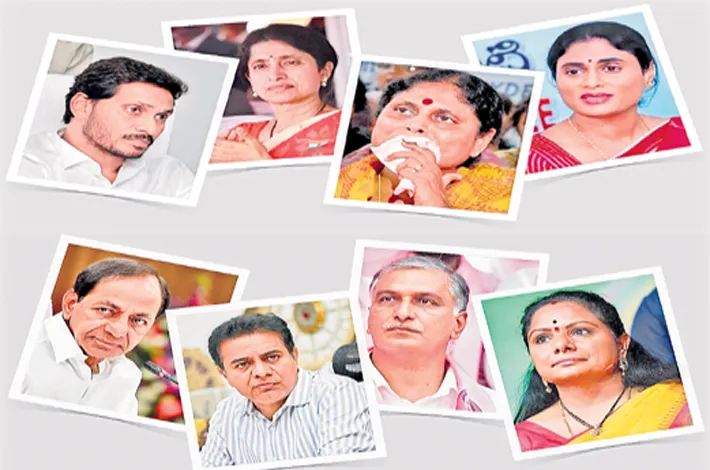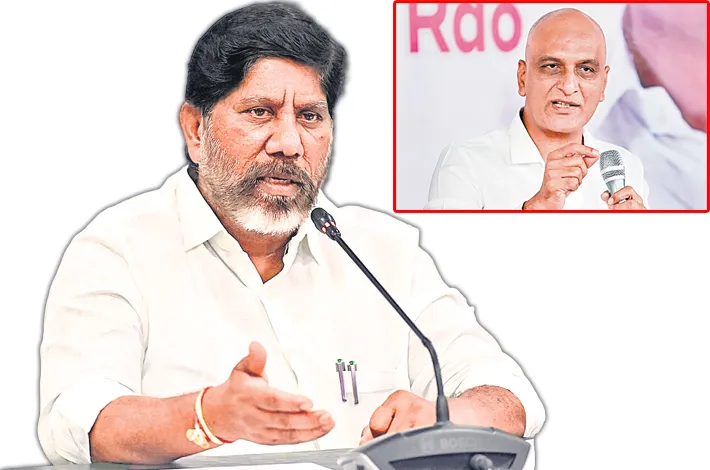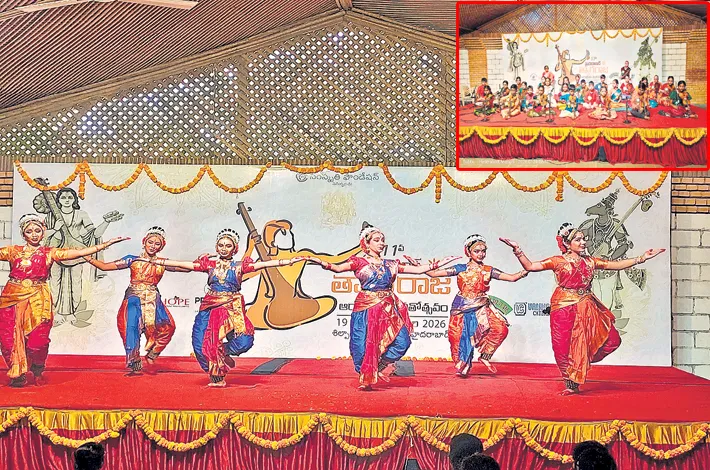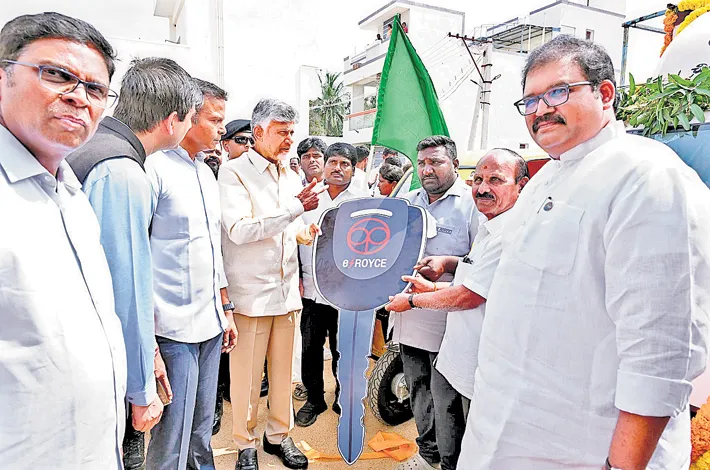The Painful Price of Dynastic Politics in India
29-05-2025 12:00:00 AM

VJM Divakar I hyderabad
India’s parliamentary democracy, one of the world’s largest, has long been shaped by the interplay of ideology, caste, and regional loyalties. However, a defining feature of Indian politics is the pervasive influence of dynastic politics, where political power is often passed down within families, treating constituencies and parties as inherited fiefdoms.
While this phenomenon has ensured continuity and brand recognition for political outfits, it has also led to intense familial rivalries, public feuds, and personal betrayals that have humiliated veteran leaders who painstakingly built their legacies.
The cases of K. Chandrasekhar Rao (KCR) in Telangana, Y.S. Jaganmohan Reddy in Andhra Pradesh, Lalu Prasad Yadav in Bihar, and Sharad Pawar in Maharashtra exemplify how regional political titans, who rose through grit and determination, have faced public humiliation at the hands of their own kin, unraveling their carefully crafted legacies.
The Rise and Fall of KCR’s Family Empire
K. Chandrasekhar Rao, the architect of Telangana’s statehood, is a quintessential self-made leader. Starting his career with the Youth Congress and later rising through the ranks of the Telugu Desam Party (TDP) to become Deputy Speaker of the Andhra Pradesh Legislative Assembly, KCR founded the Telangana Rashtra Samithi (now Bharat Rashtra Samithi, BRS) in 2001. His relentless agitation for a separate Telangana state culminated in its formation in 2014, and he became the state’s first Chief Minister, securing a resounding mandate.
KCR’s son K.T. Rama Rao (KTR), daughter K. Kavitha, and nephew T. Harish Rao—benefited immensely from his political ascent, securing key positions as legislators, ministers, and MPs. KTR served as a cabinet minister for IT and Urban Development, Kavitha as an MP from Nizamabad, and Harish Rao as a finance minister, all amassing wealth and influence under KCR’s patronage.
However, the BRS’s electoral loss in the December 2023 Telangana Assembly elections marked a turning point. With KCR no longer in power, cracks within the family surfaced. Kavitha, recently embroiled in the Delhi liquor policy scam and having spent time in jail, publicly criticized KCR in a letter, alleging that he was surrounded by “bad elements” providing misguided advice.
Her absence from KCR’s Erravalli farmhouse after returning from abroad for her son’s graduation further fuelled speculation of a rift. Meanwhile, reports suggest that Harish Rao is contemplating joining the Bharatiya Janata Party (BJP), but the chances are rare. He may well continue in BRS and accept KTR’s leadership. While Kavitha is rumored to be considering launching her own regional outfit. KTR too, will mend his ways and be more accessible to people of BRS. But this public tug-of-war among KCR’s children and nephew has humiliated a leader who sacrificed decades to achieve Telangana’s statehood, only to see his family’s ambition fracture his legacy.
The Yadav Family’s Fractured Legacy in Bihar
In Bihar, Lalu Prasad Yadav, the charismatic leader of the Rashtriya Janata Dal (RJD), built a political empire championing social justice for backward castes. Rising from humble beginnings, Lalu served as Bihar’s Chief Minister and Union Railway Minister, creating a formidable Muslim-Yadav vote bank. His wife, Rabri Devi, and children—Tejashwi, Tej Pratap, and Misa Bharti—have all held significant political roles, with Tejashwi emerging as the RJD’s political heir and former Deputy Chief Minister.
However, recent developments have exposed deep fissures within the Yadav family. In May 2025, Lalu expelled his elder son, Tej Pratap, from the RJD for six years, citing “irresponsible behavior” after Tej Pratap’s controversial social media post about a 12-year relationship amid his divorce from Aishwarya Rai. This public expulsion, coupled with Tejashwi’s favored status, has humiliated Lalu, whose legacy of social justice is now overshadowed by familial discord. The RJD’s image as a family-run enterprise has drawn criticism, with posts on X accusing the Yadavs of turning the party into a dynastic fiefdom.
The Pawar Family Feud in Maharashtra
In Maharashtra, Sharad Pawar, the patriarch of the Nationalist Congress Party (NCP), has faced similar betrayal from his nephew, Ajit Pawar. A four-time Chief Minister and Union Minister, Sharad built the NCP into a regional powerhouse after splitting from the Congress in 1999. His daughter, Supriya Sule, has been a loyal political heir, representing Baramati in the Lok Sabha. However, Ajit Pawar’s rebellion in July 2023, when he joined the BJP-Shiv Sena coalition as Deputy Chief Minister and claimed the NCP’s name and symbol, fractured the party.
The feud turned personal during the 2024 Lok Sabha elections, when Ajit fielded his wife, Sunetra Pawar, against Supriya in Baramati, only for Supriya to win by over one lakh votes. In the subsequent Assembly elections, Sharad fielded Ajit’s nephew, Yugendra Pawar, against him, prompting Ajit to accuse Sharad of breaking the family. This public spat, played out in Baramati’s political arena, has humiliated Sharad, whose decades of political maneuvering are now overshadowed by his nephew’s ambition and disloyalty.
The Broader Context of Dynastic Politics
Dynastic politics in India is not a new phenomenon. From the Nehru-Gandhi family at the national level to regional dynasties like the Badals in Punjab, Thackerays in Maharashtra, and Karunanidhis in Tamil Nadu, family ties have long dominated Indian politics. The absence of robust party organizations and centralized election financing often makes dynastic succession a practical choice, as families leverage their social capital and wealth to maintain influence. However, this reliance on kinship has a darker side, as intra-family rivalries frequently spill into the public domain, undermining the legacies of self-made leaders.
The public nature of these feuds—amplified by media and social platforms—has humiliated leaders like KCR, YSR, Lalu, and Sharad Pawar, who rose through sheer determination only to see their children and kin fight over power and wealth. These conflicts highlight a paradox: while dynastic politics offers stability and brand continuity, it also breeds entitlement and division, with successors often lacking the vision or struggle of their forebears. As Indian politics evolves, the challenge for these regional titans is to balance family loyalty with ideological commitment, lest their legacies be reduced to soap-opera-like dramas that erode public trust.








